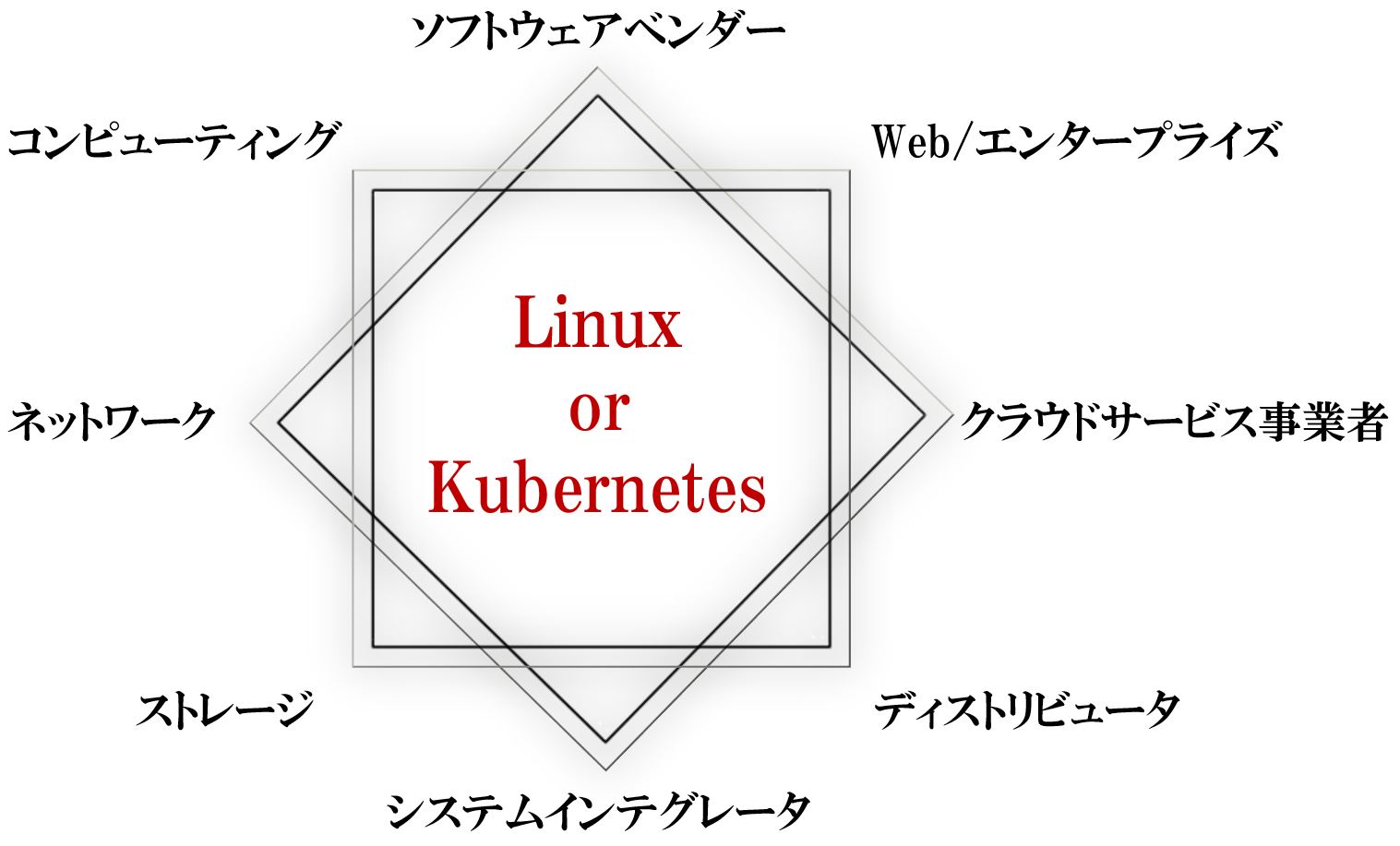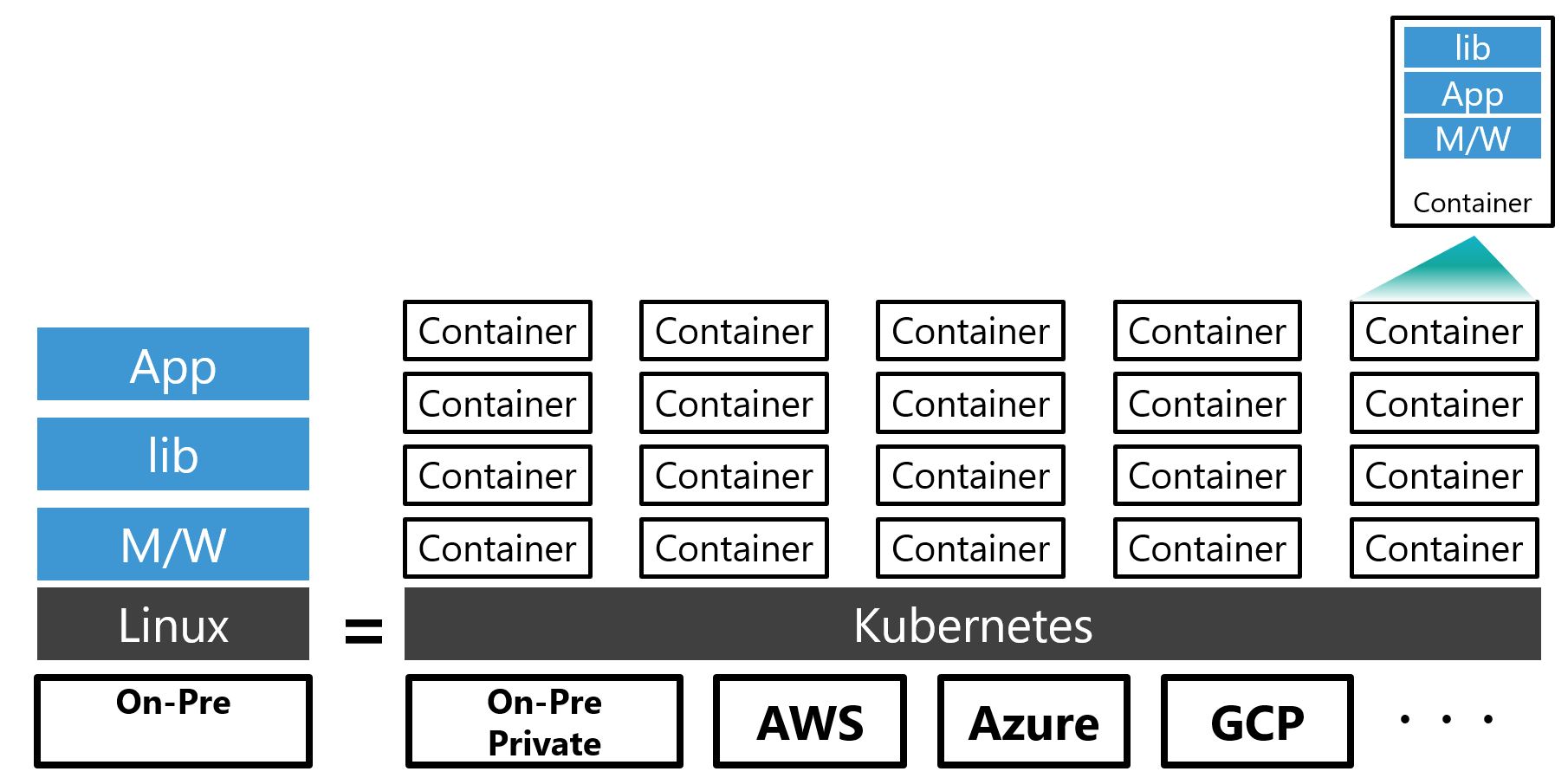Think about why Kubernetes is described as "Linux in the cloud"
- Based on the announcement of the Open Source Conference 2019 Fukuoka. This is my personal opinion at the time of the announcement.
Let's look at it from five perspectives ...
- Software
- Portability
- ecosystem
- Money tree
- Powerful under the edge
software
- Both ** open source software **
- De facto "** Linux **" as a server OS
- De facto "** Kubernetes **" as a container orchestration
Both communities are large, with "The Linux Foundation" for Linux and "Cloud Native Computing Foundation" for Kubernetes.
portability
It can be operated on any platform. To put it plainly, both can be moved in various places.
- Physical machine
- Virtual machine
- Cloud service
- Small devices (IoT devices such as Embedded)
ecosystem
The function is further enhanced by involving not only a single unit but also the surroundings.
- Distribution
- Core function expansion by plug-in module etc.
- Extension by package management

Money tree
Enterprise vendors are adopting it in their products and services to increase their value.
- Support for hardware connection environment (support for ◯◯◯ as an external device, etc.)
- Support for software provision format (container rise / manifest / support provision of various M / Ws on hand)
- Support on cloud services (as a Service)

Powerful under the edge
** "Linux" **, ** "Kubernetes" ** is behind the scenes ...
- Roughly speaking, it belongs to the "ICT infrastructure" part
- Software and services that are "on top of that" have "value"
Summary diagram
As you can see, they are very similar, so it's no wonder they are called "** Linux in the cloud world **"!

Recommended Posts